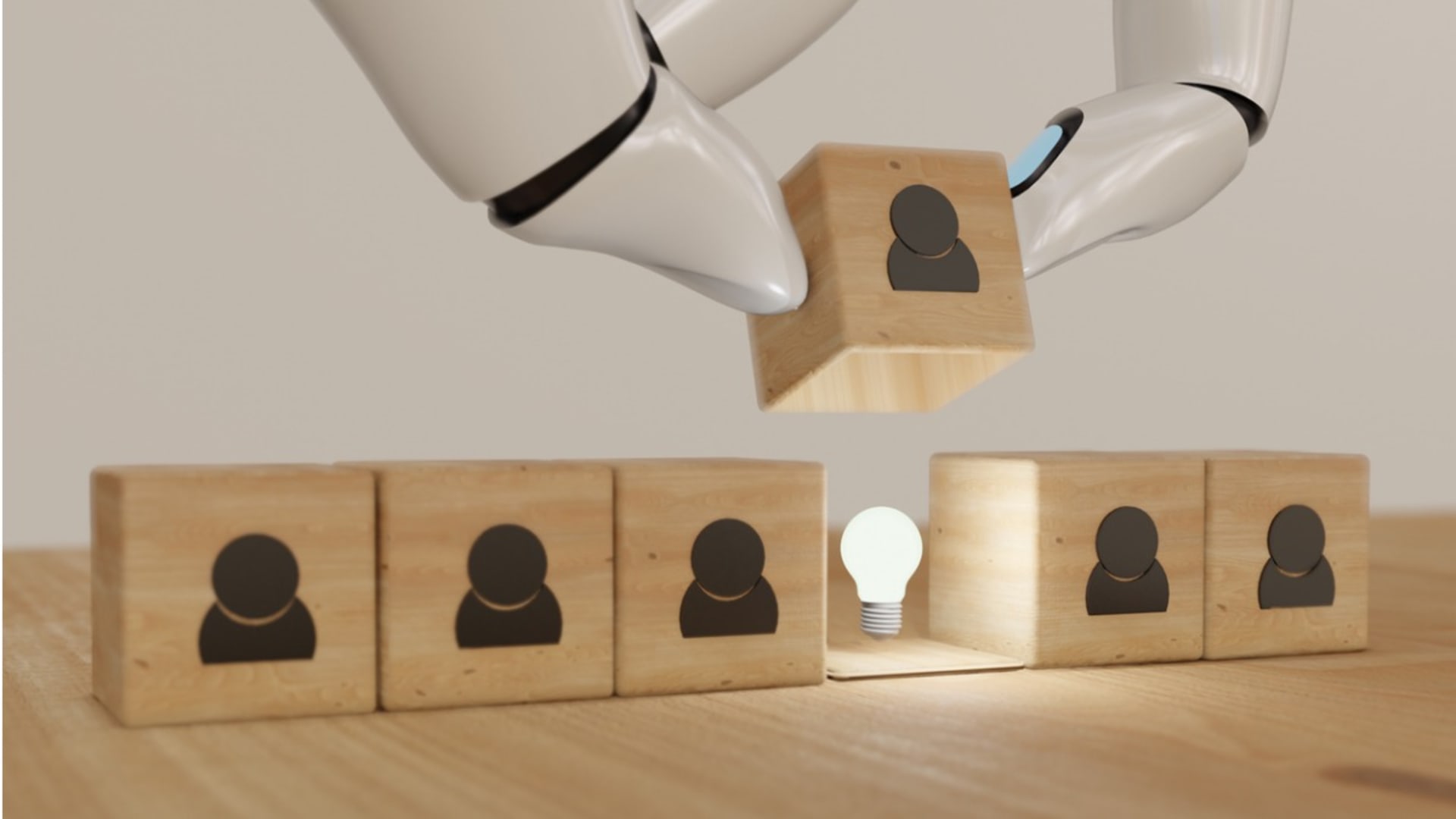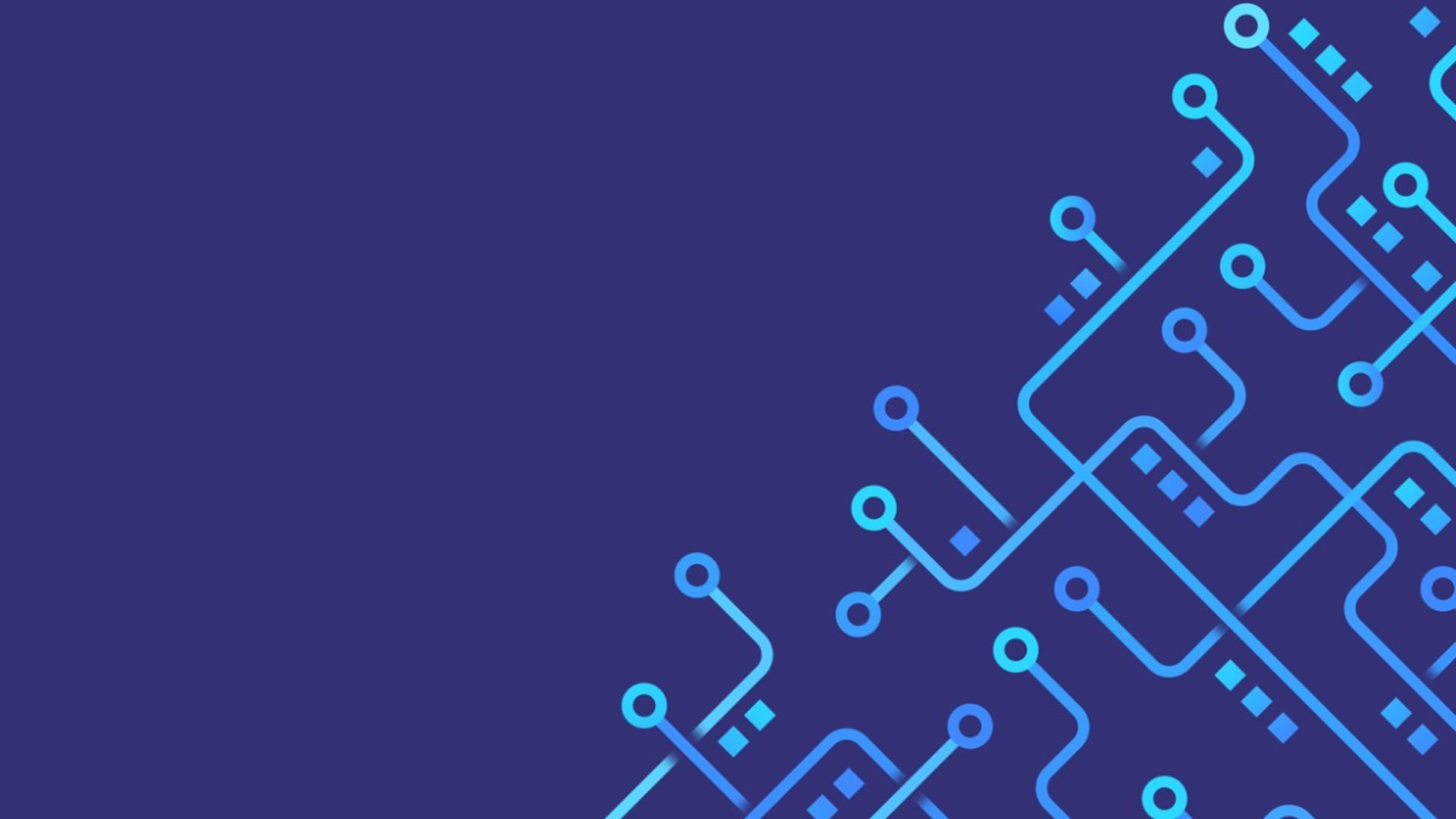The evolution of AI has been happening so quickly in recent months that professionals in many fields — even the tech industry — have been caught off guard, wondering how to make the best use of it and how to do so in ways that are safe, reliable, ethical, and legal. BairesDev is no exception, and we decided to start our AI deployment in one our biggest priority areas: recruiting. Before we get into the details, let’s first set the context for this article.
AI-Based Recruitment Basics
AI-based recruitment is simply a recruitment process that is supported by AI tools. According to an article appearing on Spiceworks, “AI works in the background alongside employers to identify ideal candidates and illuminate opportunities throughout the hiring process.” This support can help organizations get closer to the ultimate hiring goal of identifying and hiring ideal candidates with excellent hard and soft skills at the perfect time.
Using AI tools to help with recruitment is a good idea for just about every kind of company, but especially those that engage in high-volume applications such as IT, retail, e-commerce, healthcare, finance, banking, manufacturing, engineering, hospitality, tourism, education, and customer care.
AI-based recruitment offers numerous benefits, including time and money savings, and the potential to improve recruitment results. Employing the right people for job openings a higher percentage of the time leads to even greater savings because it’s much less costly to keep employees than to hire new ones. AI can help deliver the right applicants more readily because it can be used to perform tasks like expanding the talent pool and enabling better hiring decisions.
Finally, companies with more workers who are a good fit are more efficient, leading to outcomes like faster time to market and better customer care, which in turn lead to greater customer loyalty, more frequent visits, higher spend per visit, and more referrals. The end results are higher revenues, lower costs, and bigger profits. The following video highlights some of the ways AI can help companies achieve these outcomes.
The use cases presented in the next section represent scenarios in which the use of AI-based recruitment can be beneficial. But company leaders should know there are times when it may not be appropriate. Let’s look at some factors that influence this decision.
Ethical Concerns
If the AI-based processes being used conflict with company values, rules, or processes, they should be discontinued or altered. For example, the use of AI tools to screen for specific personal characteristics, such as race or gender, could lead to discriminatory practices and subsequent legal actions.
Lack of Representative Data
AI algorithms must be trained by a significant amount of high-quality data to be able to make appropriate decisions and predictions. If the data available isn’t diverse or representative enough, its use for training may lead to bias and other unwanted outcomes.
Complex or Subjective Assessments
While AI tools are helpful for conducting assessments, there are limits to this process. Some assessments should be done by humans to ensure accurate results, especially when evaluating soft skills and characteristics like creativity, empathy, and cultural fit.
Limited Resources
The situations already mentioned point to the need for highly skilled AI professionals to ensure AI systems are properly trained with high-quality data and used in the right circumstances. Hiring such professionals, as well as purchasing AI technology and infrastructure, can be costly. Organizations that lack the necessary resources to create and maintain the needed environment may want to wait until they can gather these resources. Importantly, a poorly implemented AI-based recruitment strategy could cause more problems than they solve.
AI as a recruitment ally: A BairesDev Use Case
Hiring the Top 1% of tech talent in Latin America is a challenging mission. We receive over a million applicants in a year, meaning thousands of applications everyday. Every process is composed of different phases and ensuring English language proficiency is one of the first steps in the hiring journey. As we know, we guarantee communication alignment and cultural affinity not only with clients but within our team across different countries. This is why language proficiency assessments are a great example of how we currently leverage AI for a scalable solutions.
Applying artificial intelligence in recruiting is not an easy task. As mentioned before, if an algorithm isn’t designed carefully, it can discriminate against certain demographics and produce outputs that are neither interpretable nor transparent. To minimize these risks, we implemented a human-centered approach making (human) users part of the decision-making process. We trained our deep-learning algorithm on thousands of audio files labeled by language experts and upon the algorithm reaching big metrics, we designed a process for language experts to work on the hardest evaluations.
After running the algorithm on historical past recordings, it was able to correctly assess 80% of cases as accurately as our experts. But since English is evaluated at multiple levels in different formats, interviewers still have to make a final call in the process. Nonetheless, optimizing parts of a thorough hiring journey with valuable algortithms translates to money and time savings, more so if we’re talking about great volumes of applications.
Each business has its own requirements and challenges, and there is no one right answer to the question, “How can AI help with our recruiting?” Here are some additional use cases to illustrate how your AI can support your recruitment strategies.
Additional Use Cases
In the coming months and years recruiters are sure to find many different applications for AI-based tools to help them find the best candidates for their open positions. Those listed here are some common uses currently being employed.
Candidate Sourcing
Seeking appropriate candidates for open positions can be time- and energy-intensive. But doing it effectively is more important than ever. For one thing, finding qualified candidates is getting harder. With a low number of people qualified for certain positions — especially in the IT industry — and raised candidate expectations for an efficient recruitment process, the more resources recruiters have available to perform this task, the more successful they will be.
AI tools can relieve recruiters of a certain amount of this burden. They can quickly search hundreds of online sources that include talent from across the globe to find the best candidates for open roles. This process gives recruiters a small number of highly qualified candidates to choose from, reducing the time they must invest in the process.
Skills Assessment
AI-based tools can administer straightforward skills-based assessments to job candidates. They may take various forms, such as coding challenges, simulations, or — as previously mentioned — language proficiency tests. These systems can quickly and automatically evaluate candidate responses, providing objective and standardized results across candidates. Chatbots, video-based evaluations, and data-driven skill matching may also be deployed to assess candidate skills.
Relationship Building
Building relationships with candidates is important because it allows recruiters to learn more about them and get a better understanding of whether they would fit well with the company on a long-term basis. AI-based recruitment can help to build relationships with candidates in a couple of ways.
First, it speeds up the recruiting process overall and therefore gives recruiters more time to get to know candidates beyond just their resume, and more time during the interview process. Second, AI tools can provide recruiters with additional insights about candidates to help them build solid relationships.
Decision-Making
AI can also help with decision-making, so recruiters are more likely to find the right applicant for the job. According to the Spiceworks article, “By using AI predictive technologies, recruiters can view KPIs to determine the quality of the applicant. This helps hiring managers find employees most aligned with the company’s values and who will be the best fit for the job.”
Applicant Satisfaction
Whether a company ends up hiring a particular applicant or not, applicant satisfaction with the recruitment process is important. If the candidate is hired, the recruitment process is their first impression of the company they are working for. If it is a positive one, future experiences are likely to build on it. If not, the new employee may experience it as the first of many challenges with their new position.
If the candidate is not hired, they may share their experiences with others, contributing to a positive or negative reputation and impacting the willingness of other qualified candidates to apply for jobs in the future. Further, recruiters may want to contact someone who wasn’t hired for future openings. If they did not have a good experience the first time around, they may not be open to this approach.
So, the use of AI in quickly reviewing resumes, quickly getting back to candidates, efficiently assessing skills, and making good decisions can actually humanize and improve the candidate experience rather than making it seem more mechanized. This process is positive for both companies and candidates.
Bias Mitigation
Some of the challenges with hiring in recent decades have been the result of human biases. These challenges have often resulted in homogeneous workforces that are less productive, efficient, creative, and innovative than diverse workforces. Such issues can also result in outright discrimination. AI can help reduce some of the biases that cause companies to hire only similar types of people.
AI has the ability to assess data points more objectively, with a reduced possibility for the assumptions that humans are susceptible to. AI recruiting tools can be programmed to ignore information about candidates’ personal characteristics, including gender, race, and age, resulting in decision-making that is based primarily on skills and experience.
Additionally, AI tools can help with creating job descriptions. Humans may not realize it, but the words and phrases they use in job descriptions can discourage certain candidates from applying for those positions. For example, women may be put off by aggressive language that emphasizes competition. Assistance with writing more gender-neutral job descriptions can create more appropriate descriptions, paving the way for more women to apply.
A challenging aspect of this process is that AI can actually learn human tendencies like bias since it is trained by humans. This issue is one that underlies AI processes across the board and is being examined by those skilled in technology, ethics, the law, and other areas of study. While AI is still in the dawn of massive adoption, much-needed regulation has begun to be implemented in order to face key challenges. As of July 5th, New York City began enforcing a law (New York City Local Law 144) that requests companies that use AI-powerd recruitment systems to submit their algorithm for an independent audit and to make those results public. This bias audit will reveal what average candidate scores different demographics are given. This addresses the importance of ethics in AI, and there will surely be more law instruments to come as AI permeates work processes and life events.
Recruitment Technologies
In the world of AI, new solutions are being developed all the time. Those listed here are already helping recruiters do their jobs more efficiently and effectively.
Automation
AI-based recruiting can reduce the need for manual processes. For example, a very time-consuming aspect of recruitment is screening resumes. The more applications expected, the more helpful an AI-based reviewing tool can help. This type of tool can automatically screen resumes to identify suitable candidates, schedule interviews, manage the applicant tracking system, and send personalized emails.
Data Analytics
Technology based on AI can use company data to compare the qualities of successful and unsuccessful hires for a particular position to the candidates currently applying for that position. This process enables hiring teams to target the most qualified candidates more quickly, resulting in more efficient and successful hiring processes.
According to a recent Forbes article, Amazon is using this process successfully: “The software [used by Amazon] searches for matches between the applicants’ résumés compared to current Amazon workers currently in the same type of role. Upon identifying these candidates through the AI tool, the online-retailing giant will then fast-track these candidates for interviews.”
Further, data analysis can be used to anticipate employee performance based on patterns of success of past hires. While this information should not be used to include or exclude specific candidates who may differ from the norm, it can be used to inform and support hiring decisions.
Chatbots
Chatbots and virtual assistants powered by AI can provide assistance throughout the recruitment process. They can interact with candidates to answer questions, schedule interviews, collect initial information, and provide updates on the application process. Additionally, they can provide more in-depth assistance such as sending interview reminders and preparation tips to ensure both recruiters and candidates make the most of the interview time. Further, they can collect feedback from candidates following interviews, which companies can use to improve the interview process.
Best Practices
The ways in which professionals across job functions, industries, and companies are using AI are still largely experimental. Companies must fit this technology into their current policies, values, practices, and industry requirements. While the topic of best practices is ever evolving, the simple processes listed here are good ones to start with.
Understand Recruitment Needs
Every company is different, so it is important for leaders to understand exactly what is needed by recruiters within their organization. Smaller organizations may require less involvement from AI technology and fewer people to operate it. For example, a company that processes a low volume of applicants may just want a system that reviews resumes, and recruiters can perform additional tasks such as skills assessment, interviews, and decision-making. On the other hand, a larger organization may want AI involvement for every step of the process.
Have a Strategy
The company strategy should be based on those needs. For example, the larger company may want to add AI components one step at a time; and the resume reviewing component might be a good place to start. Once that process is integrated into the overall recruiting procedure, the company could add technology and personnel to operate additional AI-based resources.
However, companies should not simply start adding tools at random. The process should be based on a strategy that aligns with the organization’s mission and goals. For instance, companies like BairesDev that are constantly hiring talent are in a good position to benefit from a swift and comprehensive AI implementation.
Assess Outcomes
When strategies are based on goals, it is important to assess how close the company is to achieving them. For instance, one goal might be to reduce the average time to recruit employees by 30%. Each new piece of the AI puzzle should be evaluated at regular intervals to determine whether it’s contributing to this and other important goals.
Still Just a Tool
Recruiters should remember that, as powerful as AI tools can be, they are still just that — tools. Recruiters must use these tools in ways that support their efforts, not replace them. According to the Spiceworks article, “Although AI significantly increases efficiency in the hiring process, it can’t replace humans altogether. … Ultimately, a recruiter must interview a candidate or interact with the person responsible for the job requisition to determine if they are the right fit for the company.”
While AI-based tools can automate various aspects of recruitment, such as resume screening or initial candidate assessments, they cannot replace the subtle decision-making capabilities, intuition, and human judgment that recruiters provide. Recruiters use skills that AI-based tools can’t (yet?) emulate, including empathy, intuition, and the ability to understand the intangible qualities that make a candidate an ideal fit.
Additionally, recruiting involves processes such as establishing relationships, gaining trust, and skillfully conveying an organization’s values and mission. These tasks, which can be critical to the hiring process, require a distinctly human touch.
If you enjoyed this, be sure to check out our other AI articles.







